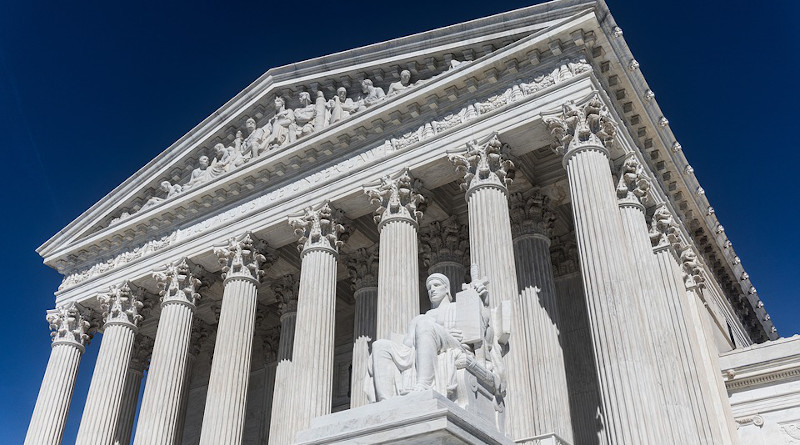US Supreme Court Rules On Trump Immunity In Election Interference Case
By VOA
By Ken Bredemeier
The U.S. Supreme Court has ruled former U.S. presidents have limited immunity from prosecution.
In a 6-3 decision, split along ideological lines, the justices on the United States Supreme Court sent back to a lower court the criminal case against former President Donald Trump in which he is charged with plotting to overthrow the presidential election four years ago.
The majority of the court declared former presidents have absolute immunity from prosecution for their official acts, however they do not have immunity for what are deemed unofficial acts.
A bedrock of U.S. jurisprudence holds that no one is above the law, that everyone has the same freedoms but also that everyone is subject to prosecution for breaking laws.
In the case the court was deciding, Trump made a sweeping claim of executive immunity, that in trying to upend his election loss four years ago, he was acting officially as president in trying to uphold the integrity of the outcome, claiming that he had won, not that he had narrowly lost because of voting and vote-counting irregularities.
Trump lost five dozen court cases claiming he was cheated out of reelection to a second four-year term, to this day making the same false claim and only occasionally saying he lost reelection to Democrat Joe Biden. They now are set to face each other again in the November 5 election.
Justice Department special counsel Jack Smith accused Trump in a four-count indictment filed in Washington almost a year ago of plotting to overturn the 2020 election result, engaging in a conspiracy to upend his loss to stay in power.
Smith accused Trump of seeking to get Justice Department officials to help validate his claims that widespread fraud had kept him from winning reelection. The indictment alleged that he and key aides pressured state lawmakers to draft false slates of electors saying that he had won states where vote counts favored Biden.
The indictment laid out how Trump pressured then-Vice President Mike Pence to block or delay certification of Biden’s victory as Congress considered the final vote count at the U.S. Capitol on January 6, 2021.
In the U.S., the outcome of presidential elections is not determined by the popular vote but by a vote in the Electoral College. The national election is, in effect, a state-by-state vote in each of the 50 states, with the most populous states holding the most votes in the Electoral College.
Trump claimed in the case being considered by the Supreme Court that the acts he undertook were not criminal to stay in power but rather to safeguard the integrity of the election and that he cannot be prosecuted. Trump’s lawyers claimed that his actions sat “at the heart of” Trump’s “official responsibilities as president.”
In one instance, his lawyers even argued that a president could not be prosecuted for using the military to assassinate a rival unless he first was impeached in a congressional proceeding.
Other court decisions have ruled that presidents have limited immunity from civil lawsuits contesting the actions they have taken.
But Monday’s case is the first time the court is ruling on presidential immunity as it pertains to alleged criminal actions by a president, and as such could set precedent for all future presidents as well, not just Trump.
As the case proceeded earlier this year, Trump contended publicly at news conferences and political rallies that all U.S. presidents must have immunity from being charged criminally after they are out of office because otherwise newly empowered political rivals in the White House would immediately look to indict their erstwhile opponents.
Trump has already been convicted of 34 felony charges in a New York state court, with a jury in late May finding him guilty of falsifying business records to hide a $130,000 hush money payment to a porn star just ahead of his successful 2016 election campaign to silence her claim — denied by Trump — that she had a one-night tryst with him in 2006.
Trump faces sentencing on July 11 and could be placed on probation or be imprisoned for up to four years.

